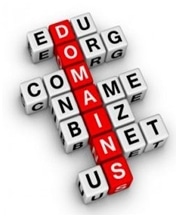
Choosing the right domain name is essential for any business that wants to establish an online presence. A domain name is your company’s unique identity on the Internet; it’s how customers find your website and it’s how you build brand recognition. The process of selecting a domain name can be daunting, but there are a few key points to keep in mind that will help you choose the perfect domain name for your business.
How to choose a domain name?
One decision that you need to live with is the domain name you select for a particular website. Once your site has the domain name, you cannot back off or change it for any purpose, even if you want to do so badly.
Have a look at the domain name selection tips.
Have you ever stopped and entered a new store just because your attention was caught by its signage or storefront? Just like an attractive storefront design, a good website can drive more business towards you.
Experts cannot stress enough the importance of establishing an online presence, particularly by those who own small businesses. Part of having a good website is getting the perfect domain name. This is your signage that will tell people to check you out. Here are tips in ensuring that the domain name you choose not only fits your company but makes sure that it will drive the right people to look up your website.
How to choose the ideal domain name for your business [Video Tutorial]
Domain name selection tips
Is it brandable?
Before deciding on one particular name, it is very important to ask yourself the question, ”Is the name brandable?” When you hear yourself or your friend calling out the name, does it sound like a brand or merely a generic term?
For example, if you plan to sell coffee and want to name your website, “coffee-shop.com” that won’t be a good idea for the process. The name is difficult for pronunciation, branding and also remembering.
Generic keyword strings do not stand out among a group of similar staff. Something unique is necessary for making people remember it. They often fail make any mark on the search results too. Instead of Coffee-shop.com, you can rely on BestCoffee.com. The hyphen, dash, removed from the brand also provides it strength.
Stick to your company name or brand

If you already have a registered name for your business, it is best to just use that for your domain name as well. The only barrier with this tip is when the domain name has already been bought by somebody else. In this case, you would either have to buy the name from the owner or think of adding more keywords to your existing company name for your domain. You can check domain name availability from bigrock, godaddy or namecheap.
Some businesses take a direct route and name themselves after their service. An example of that would be “Joe’s Plumbing.” Others, like Google and Yahoo, choose a memorable name to stand out from the crowd. Which option is best for any one business depends largely on its scope and industry. Local, service-oriented companies do better with the simple approach, while large or tech-oriented organizations can project a more polished image with something unique. Domain names should be similar, if not identical to, the blog’s or business’ name.
Intuitive domain name
The name indicating the type of business is always a good sign for its profitability. If even a couple of members among the target audience can guess your product after hearing the domain name of your business that is an extremely good sign for it. It definitely has a positive impact on the business and so remains in future.
Make a rhythmic domain name or something unique and easy
You can try various possible combinations like Cloud Nine, Step Ladders, Jumping Jack, LoBoPo, Blue Mango or Dancing Duke.
Keep it short
Try to keep your domain name short in between 6-12 characters / letters. People can easily recall that.
Make a list of possible keywords
If you don’t want to utilize your company’s name or if it already registered as a domain name by another entity, you can always resort to using a different name for your website. They key here is to come up with words that will best describe your company. Come up with five or more phrases or terms that will best give the picture of what your company does or offer. You can mix your brand or company name with keyword (That’s better than using all keywords in domain).
For example, if your company sells office supplies in Chicago, you can come up with keywords like: office needs, supplies, affordable, supplier, and Chicago. Now all you need to do is find a combination of these keywords that will sound good and is easy to type. Keep in mind that you don’t need to use all of the keywords that you’ve listed. You can go forwww.AffordableOfficeSuppliesChicago.com orwww.OfficeNeedsChicago.com.
In fact, exact-match domains with low-quality content are now losing their rankings as a result of algorithm changes. On the other hand, a domain name with keywords attached is excellent for linking purposes.
In modern SEO, domains’ primary value comes from their ability to gain recognition and responses from readers. Choose something natural, simple and related to your niche. Remember that the URL of a website is just the stepping stone to the rest of your content, where the majority of your attention should be focused.
Never use domain names that resemble any brand or company name that is already established
If you don’t want to get into legal trouble with big companies, never choose a domain name that is a few keystrokes away from the name of an already established brand. Every year, small businesses get sued for using names that are plural, misspelled, or joke versions of brand names like Starbucks, FedEx, etc.
Of course, some people might think that this is actually a good way of getting more traffic towards their websites. At least when people type the original name wrong, they accidentally land on their site. Despite the increase in traffic, the risk of getting sued and losing thousands of dollars is still there. It is better to drive more traffic to your small business’s website the hard way.
Make sure that domain name is easy to type, say, and memorize
People are getting busier and more time-pressed by the day. These busy people will not take the time to memorize or type your domain name if it is too long or complicated. This is why it really important to choose one that is simple, both to type and memorize.
Some experts claim that using the letters c, z, and q, among others, is something to be avoided. More than ease of typing, if your domain name is easy to say, people are more likely to share it with their friends or associates.
Pronunciation
You might be thinking, “why so much hullabaloo about pronunciation, while most people are going to type in the name and then click on the enter button.”
The concept of ‘processing fluency’ is always there in branding. There is a natural inclination of consumers towards the things that they can say or think about, easily. Positive association is natural with words that they can pronounce easily. The name can even be different from the native language you speak. Difficulty in pronouncing the name can make you lose ‘processing fluency’.
Try to avoid hyphen in domain name
Try not to put hyphen in domain name. It’s always better to keep domain names like 7boats.com or sevenboats.com rather than seven-boats.com. From domain name’s perspective, hyphen does not provide better user experience.
Go for the Dot-Com extension

For catering to a worldwide market, your best option for being recognized as a serious business is to opt for a domain with a .com extension. Despite all the new domain extensions approved by ICANN, dot com is the most widely recognised domain extension that the non-tech savvy folks can associate with. If you are aiming to target a specific geographic base, it may be a better idea to simply include the place as a keyword in the domain name rather than apply for a local extension.
Unless you are part of a non-profit organization, stick with the .com extension. It is ubiquitous and likely the most accurate descriptor of your website’s purpose. Although search engines do not expressly penalize various extensions, having a trustworthy URL is the first step toward attracting potential clients and back-links.
Keep in mind that the average, non-tech savvy, Internet users put more trust on .com sites over other domain names that end with a .org or .net.
Avoid Using Doubled Letters
Try not to put double letter in your domain name. Example: Fairladyy.co
Protect your brand with multiple domains (TLDs)
Book all major possible TLDs (Top level domains like .com, .in, .co, .institute, .io) for protecting your brand and to avoid future problems.
Fast Decision-Making
Domain names sell quickly. Once you’ve found something you like that’s available, register it as soon as possible.
Research
Check if the desired domain name has a past. You don’t want to associate your business with a domain that had questionable content.
Future Proof
Choose a domain name that will grow with your business. Avoid overly specific names that could limit your business’s growth or expansion.
Use domain name generator tools for fast selection
Here is a list of a few good domain name generator tools.
- Nameboy – Best Domain Name Generator
- WPBeginner – Business Name Generator
- IsItWP
- BlogTyrant – Blog Name Generator
- Domain.com
- Network Solutions
- Shopify Business Name Generator
- Domain Wheel
- Looka Business Name Generator
- Bust a Name
- Name Station
- Panabee
- Domainr
- Lean Domain Search
- Instant Domain Search
Top 10 Domain Registrars
Here are the top 10 domain registrar websites from where you can purchase a domain:
- GoDaddy.com: Known for its domain protection and privacy, GoDaddy is recognized as one of the world’s largest domain registrars.
- Domain.com: Best for overall domain name variety.
- Namecheap.com: Favored for its affordable prices.
- Bluehost.com: Frequently mentioned among the best domain registrars.
- Hostgator.com: Known for bundling domain registration and web hosting.
- Google Domains: Google’s domain registration service is also highly rated.
- Name.com: Another popular choice for domain registration.
- 1&1 (IONOS): IONOS takes a high spot in the rating of the cheapest domain registrars.
- Register.com: A well-regarded domain registrar.
- Bigrock.com
- Shopify: The best domain registrar if you’re looking to set up an online store.
Please note that the best domain registrar for you may depend on your specific needs, such as the availability of a specific domain name, pricing, customer service, and additional services like hosting or email.
After going through this write up about all the considerations that you should have in your mind at the time of choosing a domain name, I expect you all to come up with the domain name ideas you have for your businesses and products.








0 Comments